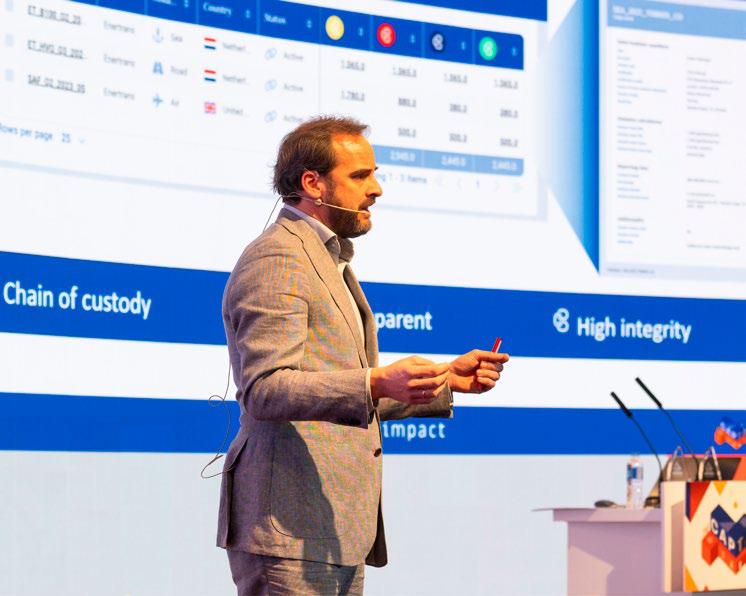
The transportation of goods by sea, road, and air currently emits over two gigatonnes of carbon a year, which is expected to quadruple by 2050. The constantly evolving regulatory landscape has created a palpable sense of urgency behind the need to adopt low-carbon fuels and clean technology, but the difficulty in recovering these investments from the end consumer represents a significant obstacle to the adoption of low-carbon fuels, at scale.
The development of carbon insetting methodologies seeks to solve this problem. Insets allow energy providers, owners, carriers and forwarders to share the cost of carbon reduction projects with their direct customers, the broader market, or pay for their decarbonized transport through verified carbon claims. Unlike offsetting, carbon insets represent concrete reductions that physically contribute to the decarbonization of that specific supply chain, which can be allocated to freight forwarders and cargo owners based on a globally developed and fully verified book and claim methodology. This flexible allocation methodology allows for an acceleration of low carbon initiatives across all transportation modalities, as well as the opportunity for operators to share the costs of decarbonization.
Esta historia es de la edición Summer 2024 de ENERGIES.
Comience su prueba gratuita de Magzter GOLD de 7 días para acceder a miles de historias premium seleccionadas y a más de 9,000 revistas y periódicos.
Ya eres suscriptor ? Conectar
Esta historia es de la edición Summer 2024 de ENERGIES.
Comience su prueba gratuita de Magzter GOLD de 7 días para acceder a miles de historias premium seleccionadas y a más de 9,000 revistas y periódicos.
Ya eres suscriptor? Conectar
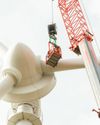
MAKING WIND ENERGY EVEN MORE SUSTAINABLE
With Voodin Blade Technology’s laminated veneer lumber blades, wind turbines can produce up to 78 percent fewer CO2 emissions, and production costs can decrease by up to 20 percent compared to current solutions.

INTRODUCTION TO CHAPTER 2: ASSESS THE OPPORTUNITY
I had a sales meeting with an executive for a company headquartered in London, England. We met in the lobby, and he ushered me into his office.
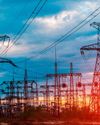
SURVIVING THE SURGE: STRATEGIES FOR MANAGING ELECTRICITY IN THE FACE OF GRID INSTABILITY
Historically, business leaders have not had to prioritize electricity when auditing or improving their supply chain management.

LOWERING CARBON EMISSIONS, SAVING MONEY, IMPROVING LIVES AND NATURE
Public and private enterprises are increasingly designing an energy transition strategy for their business given economic opportunities, legal and regulatory requirements, environmental, health and safety benefits, new technologies, and increasing stakeholder demand.

CEO Santosh Nanda STAKES GROUND IN THE ENERGY TRANSITION LAND RUSH
As the world progresses, software solutions have infiltrated all sectors and industries.
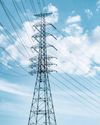
THE IMPACT OF GREEN HYDROGEN ON GRID STABILITY
Green hydrogen is one of the most eco-friendly forms of renewable energy creation.

RE+ 24
After the success of RE+ 23 last year boasting over 40,000 attendees and 1,300+ exhibitors, RE+ 24 is set to make history as it celebrates its 20th year at the Anaheim Convention Center & Campus in Anaheim, California.
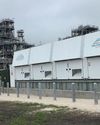
WEATHERING THE STORM: LEVERAGING DATADRIVEN RESILIENCY SOLUTIONS TO PROTECT CRITICAL INFRASTRUCTURE
As climate change intensifies, the vulnerability of our electrical grid to extreme weather events is becoming increasingly evident.
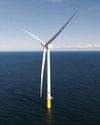
FLIPPING THE SWITCH: VINEYARD WIND 1 PHASE 1
As federal approvals continue to open opportunities for commercial offshore wind projects, the earliest approved projects are now coming online. In early 2024, Vineyard Wind 1, located just 14 miles off the coast of Martha’s Vineyard, began sending electricity to the grid.
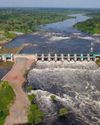
UGANDA'S RENEWABLE ENERGY AMBITIONS
In an attempt to convey its beauty, abundant wildlife, and natural wealth of the land, Winston Churchill, an early explorer of Uganda, called it the “Pearl of Africa” in his 1908 book, My African Journey.